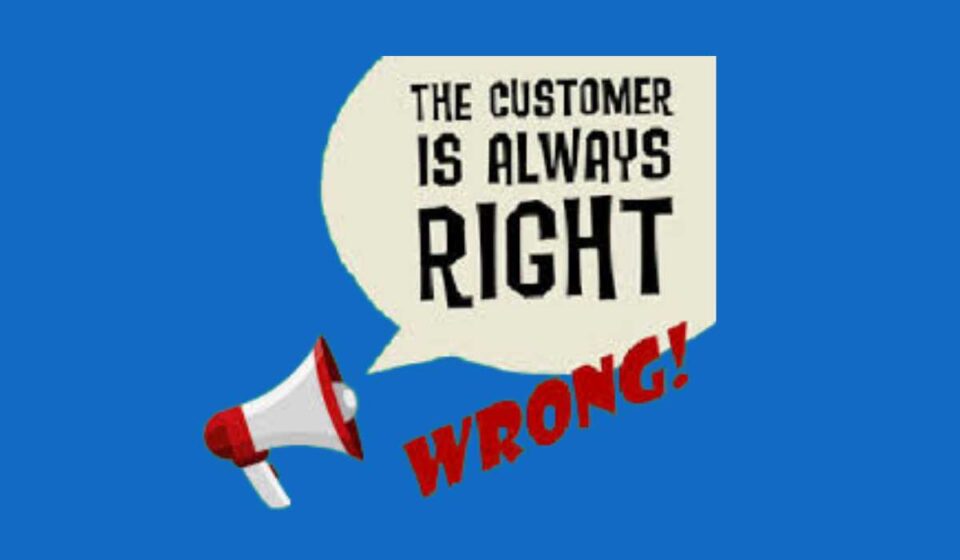The famous slogan “The customer is always right” has shaped the foundation of customer service for years. However, this principle, when followed blindly, can have negative consequences for businesses and employees alike. While it’s essential to value customers, treating their needs and complaints as infallible can undermine the efficiency, morale, and long-term success of a company. Here’s why the notion that “the customer is always right” is flawed.
1. It Erodes Employee Morale
When companies prioritize customer demands over their employees’ well-being, it can harm morale. Employees may feel undervalued or unsupported if they are consistently expected to accommodate unreasonable or rude behavior from customers. This mindset can create a stressful and demoralizing work environment, ultimately leading to high turnover rates. Supporting employees in difficult customer situations fosters a more positive workplace culture, which in turn enhances customer service.
2. Not Every Customer Is Reasonable
Although many customers are fair, some can be overly demanding or even abusive. Rigidly siding with the customer, no matter the circumstances, can encourage bad behavior, making it challenging for employees to maintain control of difficult situations. By empowering staff to handle unreasonable customers with balance and fairness, businesses can protect their workforce from mistreatment while still addressing customer concerns professionally.
3. It Can Lead to Poor Business Practices
Saying “yes” to every customer request—no matter how impractical—can lead to unsound business decisions. Accommodating unrealistic expectations, such as demanding steep discounts or expedited services, may damage a company’s profitability and operational efficiency. Businesses must strike a balance between satisfying customers and protecting their own long-term sustainability. Setting clear boundaries creates a healthier business model.
4. It Disregards Employee Expertise
Frontline employees are often the most knowledgeable about operational realities and customer behavior. Disregarding their insights in favor of customer preferences can be counterproductive. Employees understand what is feasible and what practices best serve the company’s interests. Empowering staff to make decisions based on their expertise ensures that both the company and its customers benefit from informed solutions.
5. Long-Term Loyalty Comes from Respect, Not Compliance
While keeping customers happy is important, catering to their every whim doesn’t build true loyalty. Customers respect businesses that act with integrity, set reasonable boundaries, and stand by their policies. By fostering a relationship of mutual respect between employees and customers, companies can cultivate long-term loyalty, ensuring satisfaction for both parties. Clear communication and transparency ultimately strengthen trust and credibility.
In conclusion, while customer satisfaction is crucial, businesses must recognize the drawbacks of treating the customer as always right. Striking a balance between customer care and employee empowerment leads to healthier relationships and sustainable growth for businesses in the long run.


